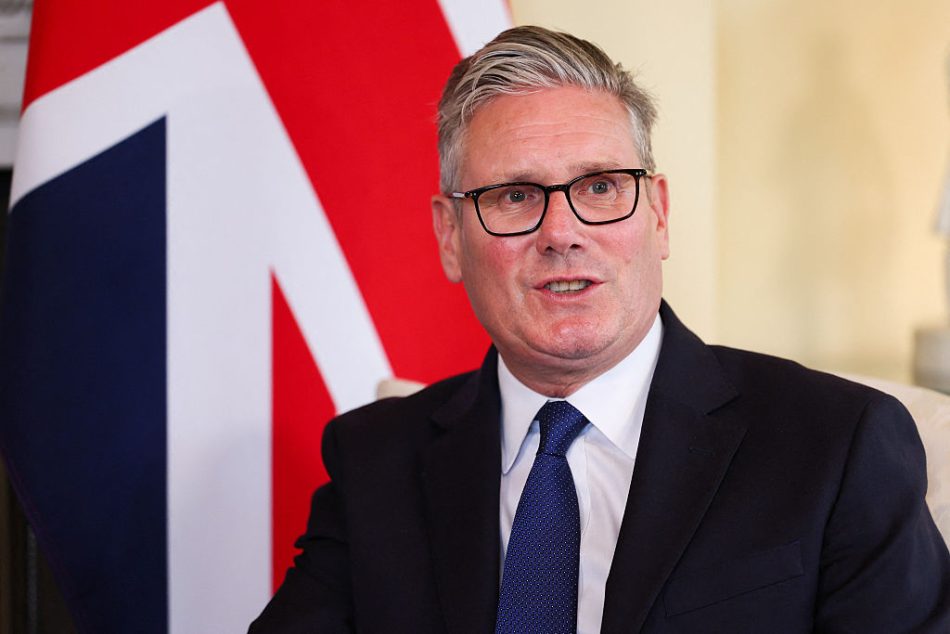
When I visited Toronto with a UK delegation last winter, conversation focused on the issues of immigration, housing and inflation that were contributing to the unpopularity of Justin Trudeau, who finally announced his resignation as prime minister last month. The prospect of Donald Trump’s return to the White House was the slumbering python in the chandelier above the conference table: I sensed our hosts preferred not to think about how bad it might turn out to be.
Well, now they know. In response to Trump’s declaration of 25 per cent tariffs on Canadian goods, plus 10 per cent on imported energy, Trudeau retorted with tariffs on many billions worth of US products. That would have brought instant price rises on both sides, chaos for US auto factories to which Canada is a major components supplier, and problems for northern US cities and states that rely on Canadian electricity. No doubt all sorts of lobbyists bent the ears of those closest to the President to persuade him to offer Trudeau a ‘one-month pause’. But the trouble has barely begun.
The Canadians, as I wrote after my trip, are ‘courteous, modest, serious folk’ who are also key western allies in defence and intelligence. Trump’s gibe that they could avoid border strife by becoming the 51st state is as mad as it is insulting. His beef with Mexico has substance insofar as it responds to uncontrolled immigration and drug flows; his braggadocio towards China is par for the course; his antics on Greenland and the Panama Canal are sideshows. But irrational hostility towards Canada is in a different category.
Trump fans say he always does deals by opening with a shock gambit, then edging towards a real objective. Maybe. But if he’s prepared to cause global trade mayhem as his first move, he’s even more dangerous than his detractors thought, and not just to close neighbours. British commentators of the ‘Why can’t we have visionary mavericks like Trump?’ persuasion, seduced by his pro-business, anti-woke agenda, should be careful what they wish for.
Astra disaster
Fate was cruel to the Chancellor last week when she chose to include in her ‘How the UK will kickstart growth’ fightback speech the name of AstraZeneca among a shortlist of ‘great companies… delivering jobs and investment across Britain’. Just two days later, the garlanded pharma giant announced that, for lack of support from her government, it was abandoning plans to develop a £450 million flu vaccine plant at its Speke campus near Liverpool.
Conservative ministers had initially offered £90 million in grants; the incoming Labour crew tried to reduce that to £40 million on the grounds of ‘a change in the make-up of the investment originally proposed’. Subsequent haggling reached stalemate and now the whole project has gone away – taking with it another piece of the vision, much promoted in recent years, of the UK as a ‘life sciences superpower’.
AZ, after all, is the successor on its Zeneca side to ICI, the greatest science-based British company of the 20th century. But heritage counted for nought two years ago when the multinational confirmed that another new facility, also planned for the north-west of England where ICI had deep roots, would be sited in Dublin instead.
Let’s not overdo the sentiment here. The Astra half of AZ is Swedish; its chief executive Sir Pascal Soriot is a French-born Australian; its operations and markets are global. We should be glad that one of its three major science laboratories is a billion-pound complex in Cambridge.
But like any large company, its investment decisions are entirely rational: in 2023, it was deterred by an increase in corporation tax from 19 to 25 per cent imposed by Rishi Sunak as chancellor, plus the rising level of rebates demanded by the NHS on prices paid for drugs. The recent cancellation at Speke for want of subsidies illustrates in a different way the challenge all governments face in striving to ensure value for voting taxpayers’ money while presenting competitive offers to footloose international corporate investors. No one’s saying that’s easy. But in any list of companies and industries the UK needs to attract to achieve Rachel Reeves’s golden goal of growth, AstraZeneca and its Big Pharma cohort sit, unfortunately for her, right at the top.
Nordic noir
Norway, usually thought of as a harmonious nation, has been plunged into political turmoil. Its centre-left coalition has collapsed after a fight over the adoption of EU clean energy directives that opponents say will drive up energy prices and weaken national sovereignty. The episode offers a cautionary tale for our own government: for Sir Keir Starmer, busy ingratiating himself with EU leaders; for Ed Miliband, whose zeal for clean energy is rapidly colliding with economic reality; and for Reeves, because the Norwegians are also driving out entrepreneur wealth-creators with punitive taxes.
But at least those exiles from the land of fjords have a destination (other than Switz-erland) where they can feel at home: Norway’s much-admired sovereign wealth fund has been quietly buying London’s West End. Norges Bank Investment Management, which runs the £1.4 trillion hoard accumulated from oil and gas revenues, recently acquired 25 per cent of the Grosvenor Estate in Mayfair, to add to its majority stake in the Pollen Estate between Savile Row and New Bond Street as well as holdings in the Crown Estate’s Regent Street footprint and Shaftesbury Capital, landlord of much of Soho and Covent Garden.
So as we wave farewell to non-doms, oligarchs, Gulf princelings, AstraZeneca executives and disheartened homegrown millionaires, let’s say a big velkomst to Bjørn and Ingrid and their ilk from Oslo. As we invite them to spend and invest liberally here, let’s hope our fiscally misguided ministers do nothing to make them feel the urge to move on. Anyone care to name London’s best Nordic restaurant?








Comments